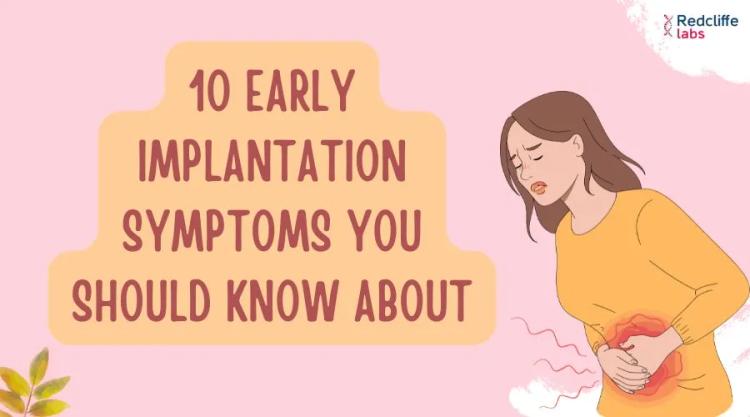How does your eating habits affect Your Health?

Medically Reviewed By
Dr Divya Rohra
Written By Meenakshi
on Nov 24, 2022
Last Edit Made By Meenakshi
on Jan 13, 2025

Nothing tastes as good as "Healthy" feels!
It goes without saying that we feel healthy when we eat healthy food. But what's the reason behind it? How does the food we consume have such a significant effect on how our body functions?
The significance of the food we consume is apparent and critical. Healthy food offers the nutrients and energy for the required growth and development, and these nutrients help our body to be active and healthy throughout the day.
To better understand the required nutrients for your body, it is essential to get health tests done regularly. Regular testing helps us know the deficiency of certain vitamins and minerals so we can follow a diet rich in vitamins and minerals. Eating healthy food is also important for the ones who follow a workout regime to preserve lean muscle and consume foods that help burn those extra calories.
The connection between a healthy diet and health
Nutrition foods directly link our body and mental health because each food or liquid comprises essential nutrients like carbohydrates, protein, vitamins, minerals, fats, etc., which play an important role in our physical and mental growth.
Food plays a vital role in the elevation of health and helps in disease prevention. In general, it consists of important nutrients that offer nutritional support to the body. You can consume these nutritious ingredients in grains, pulses, fruits, vegetables, oils, etc.
Role of food on the body
Food has always played a significant role in human existence, and it is an essential component on which the overall sustenance of health depends. It is thus important to consume foods that are extremely rich in nutrients, minerals, and vitamins. Nutrition food is responsible for building new cells and tissues that are essential for growth and development and also help the body to fight infections and diseases.
Nutrients direct our bodies on how to function. In this sense, food is a source of "information" for the body. Thinking about food this way, we need to recognize the healthy foods we can include in our diet rather than foods we should exclude.
Relationship between Nutrition and Diseases
Following an unhealthy diet, the pattern can seriously impact our health and increase someone's risk of suffering from heart disease, obesity, stroke, and Type 2 diabetes.
Various research studies have shown that consuming too much sugar, salt, or fat in your diet can increase your risk for certain health ailments. A healthy diet, on the contrary, lowers your risk for cardiac arrests, stroke, diabetes, and other health conditions. A healthy diet includes a complete platter of vegetables, fruits, whole grains, and fat-free or low-fat dairy foods.
Unhealthy eating habits comprise under or over-eating, not getting enough of the nutrients our body requires each day or consuming too much junk food, high sugary foods, and sweetened beverages, which are low in fiber or high in fat.
These unhealthy dietary habits can affect our nutrient intake, as they contain less protein, carbohydrates, essential fatty acids, vitamins and minerals, fiber, and fluid. Some of the common ill health ailments that happen as a result of consuming a poor diet are:
- Obesity
- Dental problems
- High cholesterol
- High blood sugar levels
- High or low blood pressure
- Heart diseases
- Some forms of cancers
- Stroke
- Depression
- Mental health problems
- Osteoporosis
- Skin diseases
- Digestion problems
Benefits of a healthy diet
Nutrition food typically includes a nutrient-rich diet from all major food groups, comprising lean proteins, green leafy vegetables, whole grains, healthy fats, and fruits. A diet is also beneficial when we replace trans fats, added sugar, and salt with nutritious food. Some of the advantages of healthy food are:
Enhanced memory
Did you know that the foods we eat impact our memory? Regarding brain health, memory, and concentration, healthy foods and drinks like blueberries, coffee, fatty fish, turmeric, and broccoli have generated much buzz. Fatty fish is rich in Omega-3 fatty acids. Caffeine and antioxidants support brain health.
Blueberries – to deal with health blues!
Blueberries are best known for their anti-inflammatory and antioxidant attributes. They are rich in Vitamin K, and thus they play a significant role in promoting heart health. Apart from that, blueberries also help strengthen bones and skin health and are consumed by people who have a problem with obesity, blood pressure, and diabetes. Those taking anticoagulants must get a health test before consuming blueberries so that the excess Vitamin K may not affect blood clotting.
Turmeric
This yellow-colored spice, apart from giving your meals a golden hue, turmeric can do wonders for your health as well because of its anti-inflammatory properties. Curcumin is an active ingredient in turmeric that contains antioxidants, helps in lessening the pains, lowering the risk of heart disease, and improving digestion. This ingredient also increases serotonin and dopamine levels, regulating mood and improving other bodily functions.
Before you go
These are a bunch of healthy foods that have various benefits for overall health. Together with health tests, you can improve your overall health by getting the right information about your health. If you want to get your vitamin and mineral levels checked, book a test with Redcliffe Labs. To get complete information on preventive health packages, you can reach us at 898 898 8787.



